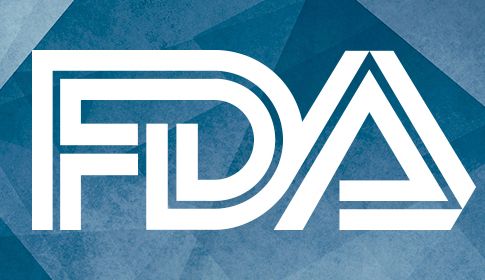Finerenone (KERENDIA) Approved for Chronic Kidney Disease Associated with Type 2 Diabetes
With approval on July 9, finerenone (Kerendia) becomes the first nonsteroidal mineralocorticoid receptor antagonist to receive approval for use in adults with chronic kidney disease associated with type 2 diabetes.

Endocrinologists, diabetes specialists, and nephrologists had a new weapon added to their arsenal thanks to the US Food and Drug Administration’s approval of finerenone (Kerendia) for treatment of patients with chronic kidney disease associated with type 2 diabetes.
With approval based on the results of the phase 3 FIDELIO-DKD trial, finerenone becomes the first and only nonsteroidal mineralocorticoid receptor antagonist approved by the US FDA for adults with chronic kidney disease associated with type 2 diabetes.
“The patient population included in the trial that supported the approval of KERENDIA were at risk of chronic kidney disease progression despite receiving standard of care treatment to control blood pressure and blood glucose,” said George Bakris, MD, University of Chicago and lead FIDELIO-DKD study investigator, in a statement from Bayer. “In people with chronic kidney disease associated with type 2 diabetes, physicians now have a new treatment to provide kidney protection.”
Indicated for reducing the risk of sustained eGFR decline, kidney failure, cardiovascular death, non-fatal myocardial infarction, and hospitalization for heart failure in patients with chronic kidney disease associated with type 2 diabetes, excitement around finerenone has been building since the trial was published in NEJM and presented at ASN Kidney Week during October 2020.
A randomized, double-blind, placebo-controlled trial enrolling more than 5600 patients, FIDELIO-DKD compared finerenone versus placebo therapy and found use of finerenone was associated with an 18% reduction in risk for progression of chronic kidney disease and a 16% reduction in risk of the composite cardiovascular endpoint. Recently, a trio of prespecified analyses from the trial presented at ADA 2021 demonstrated the agent provided consistent effectiveness, irrespective of baseline insulin, GLP-1 RA, and SGLT2 inhibitor use. These analyses even suggested concomitant use with SGLT2 inhibitors could result in an additive effect on the renoprotective effects of these agents.
Prescribing information for finerenone notes the recommended starting dosage is 10 mg or 20 mg orally once daily, depending on eGFR and serum potassium thresholds. The dosage is then increased after 4 weeks to the target dose of 20 mg once daily.
The prescribing information also notes the agent is contraindicated against concomitant use with strong CYP3A4 inhibitors and among patients with adrenal insufficiency. Additionally, prescribing information listed hyperkalemia, hypotension, and hyponatremia as common adverse reactions seen with finerenone.
“Chronic kidney disease associated with type 2 diabetes can have such a debilitating impact on patients’ lives.10 Unfortunately, this disease is far reaching, as up to 40 percent of all patients with type 2 diabetes develop chronic kidney disease,” said Kevin Longino, CEO of the National Kidney Foundation, and a kidney transplant patient. “It is important for physicians and patients to have new treatment options that can slow chronic kidney disease progression.”
In the aforementioned statement, Bayer noted the expectation that finerenone would be available in the US beginning the end of July 2021. Additionally, the release noted finerenone is awaiting marketing authorization in the European Union.